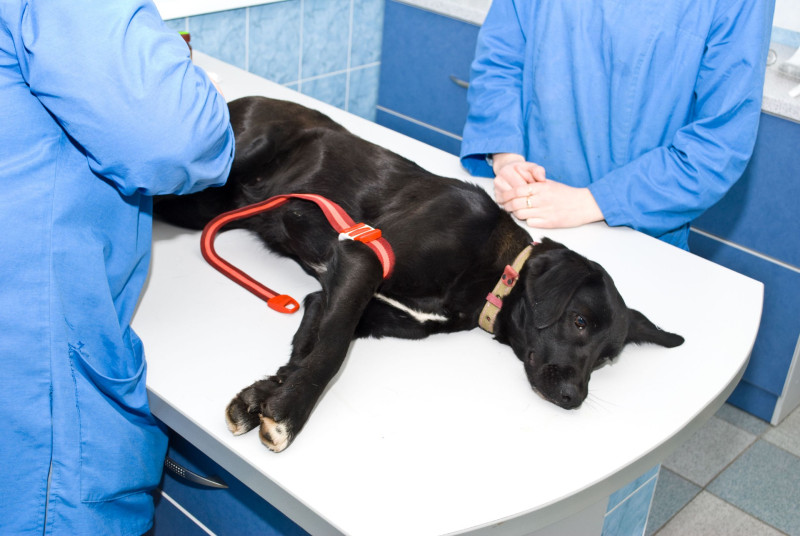Hip dysplasia is one of the most common reasons why your dog would need Orthopedic Pet Surgeries outside of injuries. One of the most common genetic conditions in dogs, it also can be caused by poor nutrition and excessive exercise in puppies. Here is some information about hip dysplasia from Animal Medical Center.
What Is Hip Dysplasia?
Normally, the hip bone fits snugly into the socket of the hip joint. This does not happen when a dog has hip dysplasia. If left untreated, hip dysplasia causes a profound lameness and painful osteoarthritis. Even mild forms of hip dysplasia are painful.
What Are the First Symptoms?
Dogs or puppies will walk with a limp, have trouble standing up and even hop like a rabbit in order not to move the hind legs. The dog may fall down stairs as he cannot move his hind legs freely enough to negotiate the stairs. The dog will avoid activity, even ones that used to send the dog into a frenzy of happiness. When the hind legs not being moved as much as the forelegs, the muscles start to shrivel. Dogs may exhibit a clicking noise when they move their hind legs at a trot. Puppies as young as five months can develop hip dysplasia.
What Are the Treatment Options?
Depending on how severe your dog’s hip dysplasia is, your vet may recommend Orthopedic Pet Surgeries or take steps to try and avoid surgery. Non-surgical treatments include a weight loss plan, exercise like swimming which takes a weight off of the dog’s joints and using nutritional supplements recommended by your veterinarian. Supplements commonly used for hip dysplasia include fish oil, MSM, and glucosamine chondroitin. Drugs may be used to help control pain and inflammation. These drugs may be pills or shots may be needed. If your dog is to be on pain medications long-term, she needs blood tests regularly to monitor her liver function. Unfortunately, pain medication can cause liver damage. Some dogs also respond to having their limbs gently manipulated while they lie on their sides. Usually, a combination of treatments is given to a dog before surgery is recommended. You can also follow them on Twitter for more information.


